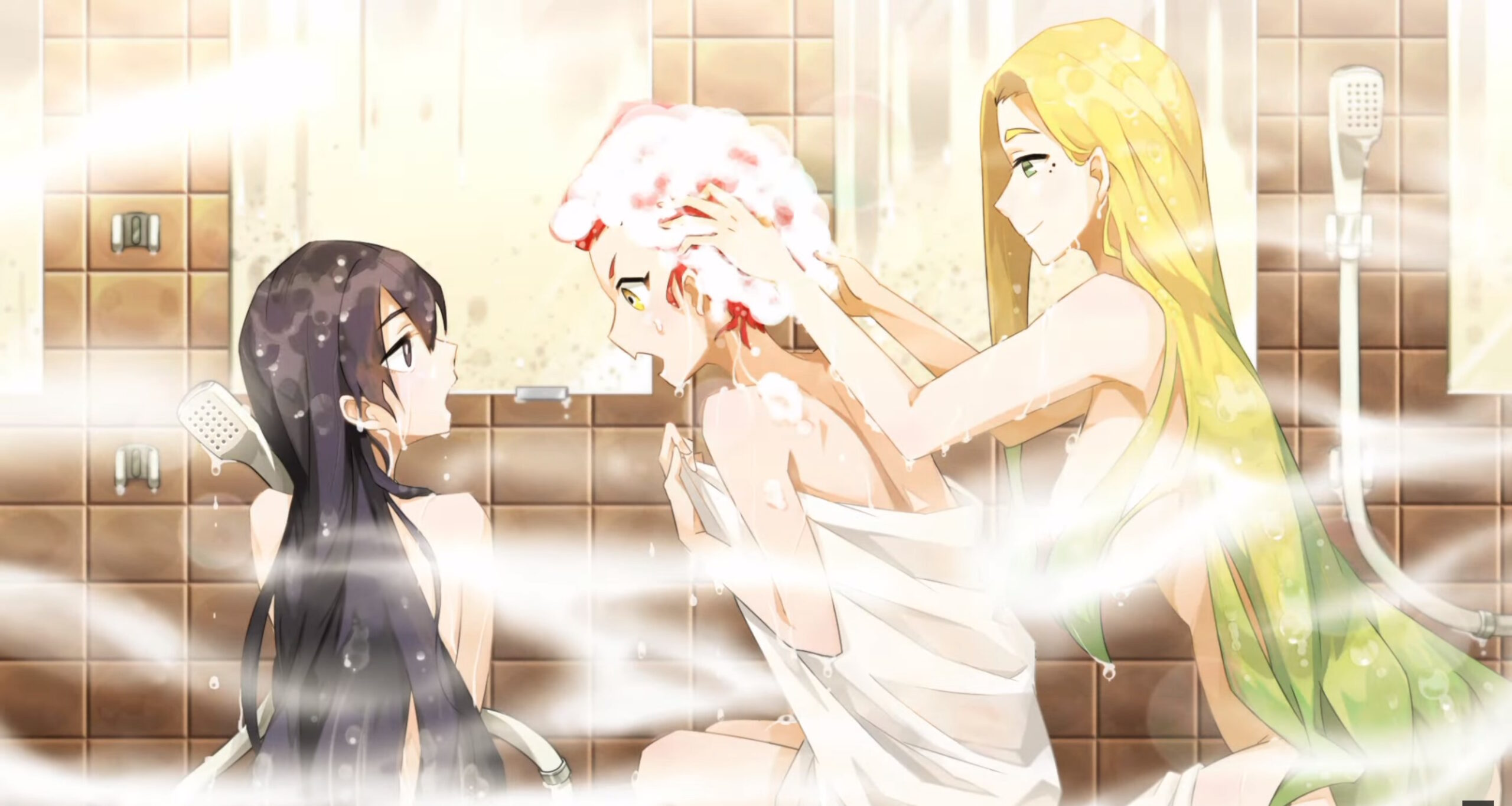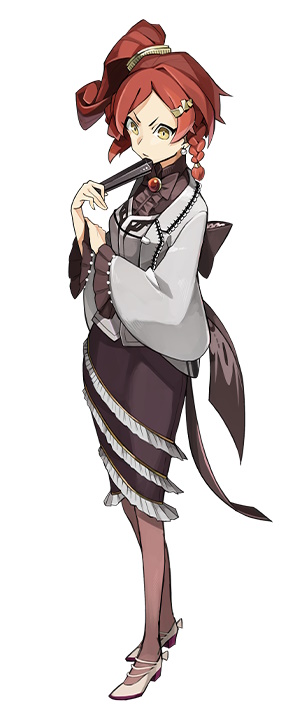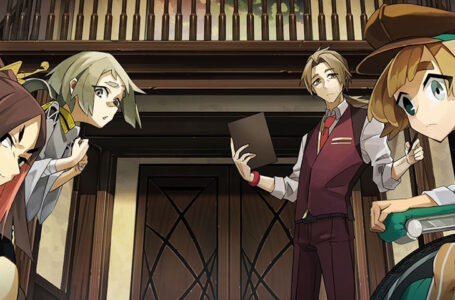We still need to get better at talking about sex. And mild fanservice that is not sex.
In August of 2019 on my personal site (prior to my time here at Rice), I wrote an article called “We need to get better at talking about sex”. Its original context was that certain writers from certain publications were making snide remarks about top-selling games on Steam being “anime sex games”, and highlighted the fact that the mainstream press is remarkably bad at acknowledging the value of anything even a little bit sexy such as fanservice… unless, of course, it’s a western-made LGBTQ+ game, in which case it should be celebrated unconditionally, even if it’s not actually very good.
I was put in mind of this article this week because of a review a colleague and friend of mine happened to share with regard to the recently released Process of Elimination from Nippon Ichi Software. Said review was… reasonable for the most part, but one paragraph stood out to my friend, as it was a complaint about fanservice we’ve heard a thousand times before:
Unfortunately, [the game’s] cast is sometimes marred by overly tropey capital-A “Anime” writing. Did we need Gourmet Detective’s massive boobs spilling out of a motorbike jacket, contrary to the otherwise decent character design? No. Did we need the randomly crowbarred-in shower scene featuring the prepubescent Bookworm Detective? Absolutely not, come on. These inclusions don’t feel natural to the game, they feel like things that have been rammed in to meet some visual novel checklist somewhere.
This was then backed up with “unnecessary fanservice” being listed as a “con” of the game in the final summary, and almost certainly being responsible for the docking of at least some points, as the rest of the review was otherwise relatively solid.
Are you sick of this? I’m sick of this, because it doesn’t feel like we’ve made any progress whatsoever since I wrote that previous piece back in 2019. And the examples cited from Process of Elimination aren’t even particularly about “sex” as such; they relate to mild fanservice on the part of this character, who is the aforementioned Gourmet Detective:

And this image, which is the awful, terrible, disgusting, child-corrupting shower scene:

Hardly the sort of things you’d be trawling the boorus for, I’m sure you’ll agree — and yet to the reviewer in question, this was flat-out objectionable material, despite how it’s abundantly clear neither the design of Gourmet Detective nor the shower scene are intended to be sexually arousing, pornographic scenes. Sure, there are sexy fanservice elements to both, sure — and the fact they both involve Gourmet Detective almost certainly isn’t a coincidence — but there’s a difference between having a sexy character and crossing a line into gratuitousness.
In the case of the shower scene, it bears repeating for the umpteenth time that there is a cultural element to shower scenes like this that goes far beyond simple fanservice. Bathing together with others is commonplace in Japan, and when depicted in popular media it is almost always used as a symbolic representation of closeness between characters — not in a sexual sense, but simply in terms of how comfortable they are with one another, how much they trust one another, and how much confidence they have in themselves.
In the image above, for example, we can immediately tell that Gourmet Detective (right) is the most comfortable in the scenario, likely due to her “big sister” personality trait. We can tell this from the fact that she is completely nude (albeit not actually revealing anything in the image beyond some hair-obscured sideboob) and directly interacting with one of the other girls — in this case, Posh Detective (middle). Her willingness to wash Posh Detective’s hair while seemingly being unconcerned about her own nudity tells us a lot about the character.
Likewise, if we look at Bookworm Detective on the left, we can also tell quite a bit. With her back to the camera and not a hint of any sexual characteristics on display, she is downplayed as a sexual object — thereby making the reviewer’s emphasis on her being “prepubescent” a tad worrying, as her depiction is completely innocent — but the fact she is nude is still important.
It demonstrates that she does have a certain amount of confidence in herself — or at least is willing to acknowledge that nudity is necessary in scenarios such as washing communally — but her closed body language towards Posh Detective suggests that she is not quite as comfortable in the scenario as Gourmet Detective is.

Finally, we have Posh Detective in the middle, who is completely covering her body with a towel while being washed, and exhibiting an expression that looks like she is pleading with Bookworm Detective. From this, it’s obvious that as a “posh” character, she’s not accustomed to this level of intimacy — again, not sexual — with other characters. As a “posh” character, she’s likely typically kept others at arm’s length, and indeed her clothed character design (right) would appear to back that up; she’s one of the most “covered” of all the female characters.
And this, of course, takes us back to Gourmet Detective’s character design. Her fanservicey costume is a deliberate contrast to, say, Posh Detective, and also symbolic of her self-confidence. Her large breasts are likely an attempt to emphasise a somewhat “motherly” (or rather, “big sisterly”) nature towards others, but the fact that they are visible in an outfit one would probably consider to be quite youthful makes it clear that she’s not necessarily a “mature” character in the same way as some other members of the cast.
See? Not a jot of that is about getting one’s rocks off. I haven’t even played the game yet and I can tell all that from just two still images thanks to cultural awareness and a familiarity with other works that have come from the same or similar sources. Yes, there’s fanservice present, but that doesn’t mean that it’s pornographic — or even mildly erotic.
Given that the review in question criticises the game for having “capital-A ‘Anime’ writing” as a pejorative, though, it’s fair to say that tolerance of works from other cultures perhaps wasn’t the first thing on the mind of the reviewer. And it’s a real shame that we’re still seeing this going on among the mainstream press. For my money, these sorts of comments don’t make reviewers look progressive and noble; it makes them look immature, like they’re worried they might get cooties from the pretty anime girls or something.
Moreover, it is once again denying that the presence of attractive female characters or fanservice in general is not a sign that a game is designed for horny teenage boys who want nothing more than some easy wank material. Many of the awesome, deliberately sexy female characters who hail from anime-style Japanese gaming are particularly popular with a female audience, regardless of their sexuality, and some even find great inspiration from sources that mainstream critics are all too quick to write off as “unnecessary fanservice”.
I’ve made this argument time after time over the years — that previously linked article from 2019 was far from the first time I’d commented on it — and it disappoints me that we don’t seem to be getting any better at talking about subject matter like this. Games have grown up and gamers have grown up; I’d say it’s about time the people who are writing about games grew up a bit, too.
Join The Discussion
Rice Digital Discord
Rice Digital Twitter
Rice Digital Facebook
Or write us a letter for the Rice Digital Friday Letters Page by clicking here!
Disclosure: Some links in this article may be affiliate links, which means we may earn a small commission if you make a purchase after clicking on them. This is at no additional cost to you and helps support Rice Digital!
- Letter from the Editor: passing the torch - June 30, 2023
- Super Woden GP 2 is looking promising - June 30, 2023
- Inti Creates is making a 32 bit-style Love Live action platformer - June 26, 2023






